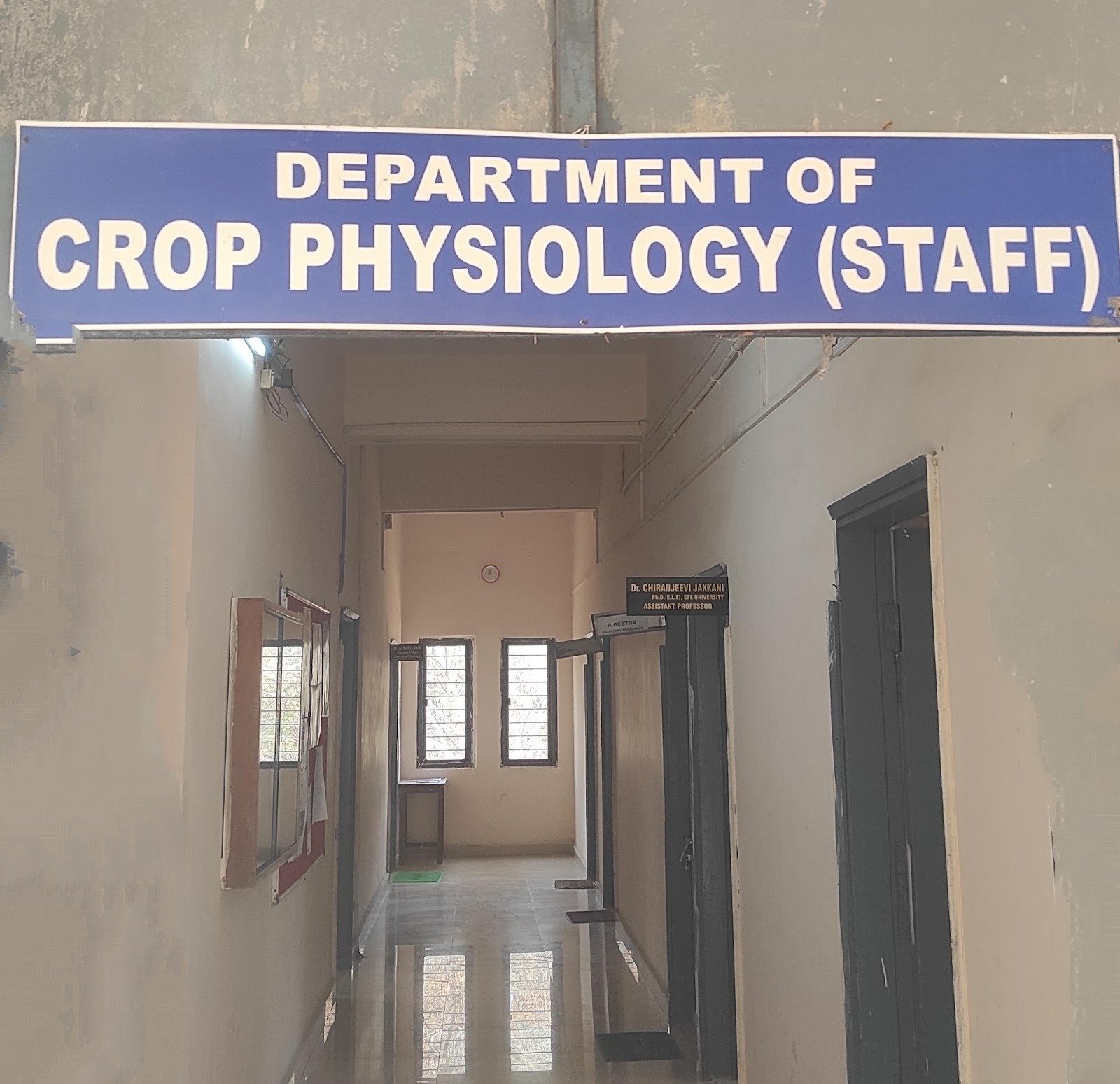Plant Physiology
The Plant Physiology course provides a comprehensive understanding of the physiological and molecular processes governing plant growth and development from seed to seed. It covers essential topics such as seed germination, dormancy, seed quality, and plant growth and maturation. The course emphasizes recent advances in water relations, mineral nutrition, carbon and nitrogen metabolism, photosynthesis and the regulatory role of plant hormones.
Students gain practical, hands-on experience using modern high-throughput equipment to measure key physiological traits and assess their influence on crop yield and quality. The course also introduces advanced technologies, including nutrio-hormonal consortia, aimed at mitigating abiotic stresses, correcting physiological and nutritional disorders, and enhancing the productivity and quality of major crops

Teaching Staff Details
| Sl. No | Name | Designation | Field of Specialization | Contact Details | Photo |
|---|---|---|---|---|---|
| 1 | Dr. D. Saida Naik | Professor & Head | Post Harvest Physiology |
danavaths76@gmail.com |

|
| 2 | Dr. A. Geetha | Assistant Professor | Abiotic Stress |
geethagri_100@yahoo.co.in |

|





